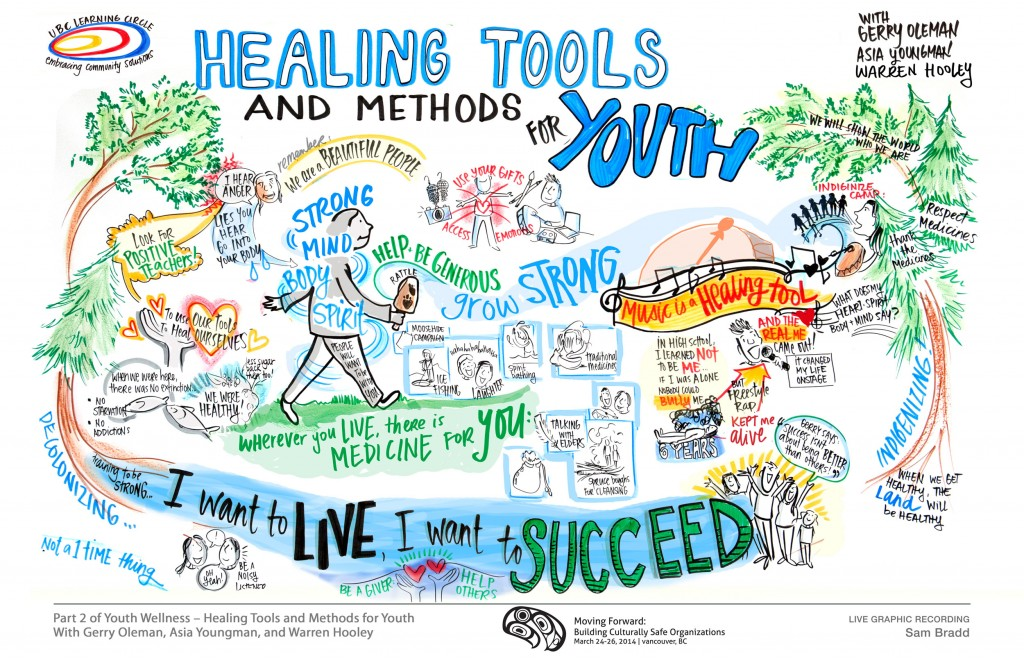
Youth Well-Being: Insights from a Global Flourishing Study
Youth well-being has garnered significant attention in recent years, emphasizing the crucial intersection of mental health, social connections, and financial security. A recent global study highlights the concerning trends that illustrate a decline in the well-being of our youth, indicating that material wealth alone does not equate to happiness. It raises profound questions about childhood happiness and the essential investments that society is making in the next generation’s future. With the intricacies of these challenges laid bare, it becomes clear that fostering social bonds and addressing mental health issues are vital components of promoting youth well-being. As we reflect on the findings of the Global Flourishing Study, it is imperative to consider how we can cultivate environments that enhance the mental and emotional wellness of young people around the world.
The state of well-being among young individuals is a matter of increasing concern, particularly in light of recent research that explores factors influencing their happiness and quality of life. Concepts such as mental health and childhood contentment have become critical focal points for policymakers and educators alike. The intricate web of support systems, including financial stability and social relationships, plays a significant role in shaping the overall development of youth. Engaging in alternative discussions about youth thriving and holistic health can help create a more comprehensive understanding of how to promote flourishing among younger populations. Overall, tackling these multifaceted issues is vital for ensuring a prosperous future for the upcoming generations.
The Importance of Youth Well-Being
Youth well-being is a crucial aspect of a thriving society. It encompasses not only mental health but also the emotional and social aspects of young people’s lives. Recent findings from the Global Flourishing Study underscore the importance of investing in the holistic development of youth. As highlighted by researchers, the traditional metrics of success, such as financial security and economic status, do not adequately capture the flourishing of younger generations. Instead, it’s vital to consider factors like social connections and childhood happiness, which play a significant role in shaping the mental health of youth.
In many countries, especially those with robust economies, the well-being of youth has become a pressing concern. The rising mental health issues and a notable decline in childhood happiness have led experts to call for a reevaluation of how we approach youth developmental programs. Strengthening community ties and ensuring that young people have access to supportive relationships can foster a sense of belonging and purpose, ultimately contributing to their overall well-being.
Financial Security and Mental Health in Youth
Financial security is often perceived as a dominant factor in determining overall well-being; however, the findings from the Global Flourishing Study challenge this notion. In many cases, wealthy nations rank lower in youth measures of flourishing when compared to their middle-income counterparts. This phenomenon raises critical questions about how financial stability translates to mental health and happiness among young people. It suggests that while economic resources may provide certain advantages, they do not guarantee emotional or psychological prosperity.
The study illustrates that countries like Indonesia and Mexico, which may be considered lower in economic standing, often show higher levels of youth mental health and social satisfaction. The implication is clear: financial resources should not overshadow the necessity of social support, meaningful community engagement, and a nurturing family environment. Addressing youth mental health therefore requires a dual approach that incorporates both financial security and an emphasis on creating rich social connections.
Childhood Happiness as a Foundation for Adult Flourishing
The evidence suggests that childhood experiences play a significant role in shaping an individual’s future well-being. High levels of childhood happiness correlate strongly with improved mental health and flourishing in adulthood. As shown through the Global Flourishing Study, positive childhood experiences, such as loving relationships with parents and a healthy environment, directly affect youth’s ability to thrive as adults. Prioritizing childhood happiness is thus not just a moral imperative but a strategic investment in the next generation’s success and well-being.
Furthermore, the study emphasizes the need for initiatives that enhance children’s quality of life. This includes fostering environments where children can build strong relationships, engage in community activities, and experience emotional support. Such initiatives can mitigate future mental health struggles, underscoring the importance of viewing childhood not merely as a developmental stage but as a critical period that lays the groundwork for lifelong flourishing.
The Role of Social Connections in Youth Well-Being
Social connections are a foundational aspect of youth flourishing, influencing various outcomes including mental health and overall happiness. The Global Flourishing Study indicates that strong social networks provide emotional support and promote resilience among young individuals. In contrast, isolation and lack of meaningful relationships can lead to increased risks of mental health challenges, such as anxiety and depression. Consequently, investing in programs that encourage social engagement and foster friendships among youth is essential.
Additionally, the data reveals significant variances between countries regarding social connection and well-being. Nations that encourage a culture of community and togetherness tend to report higher levels of youth flourishing. Initiating community building projects, support groups, and peer mentorship programs can act as critical elements in enhancing youth mental health and providing the social scaffolding necessary for young people to thrive both now and in the future.
Rethinking Economic Development and Its Effects on Youth
The findings from the Global Flourishing Study challenge traditional views on economic development and its relationship with youth well-being. As illustrated by the relative success of middle-income nations, financial prosperity alone does not equate to flourishing among young populations. The focus on economic metrics must now shift to include measures of mental health, social connections, and opportunities for meaningful engagement in communities. This kind of broader perspective will facilitate a more balanced approach to youth development.
Moreover, the study prompts policymakers to consider potential trade-offs when pursuing economic growth. The prevalence of stressors associated with high-pressure environments in wealthier nations can detract from the emotional health of youth even as economic indicators improve. To foster genuine well-being, strategies should prioritize creating environments where youth experience both economic security and a meaningful sense of belonging.
Long-Term Impacts of Early Relationships on Flourishing
A critical finding of the Global Flourishing Study indicates that early relationships, particularly with parents, strongly correlate with positive outcomes in adulthood. Children who experience supportive and nurturing relationships are more likely to report higher levels of happiness and mental health in their later years. This underscores the importance of fostering healthy family dynamics and parental engagement as a pathway to achieving optimal youth flourishing.
Investment in relationship-building programs, family counseling services, and supportive educational initiatives can significantly bolster youth development. By prioritizing healthy early relationships, we can mitigate future mental health issues and empower young people to cultivate strong social ties that enhance their overall quality of life.
Spiritual Well-Being: A Pathway to Youth Flourishing
Spiritual well-being emerges as a significant domain in assessing youth flourishing, as highlighted by the Global Flourishing Study results. Frequent participation in spiritual or religious activities correlates with better mental health outcomes and increased happiness among youth. This relationship suggests that avenues for spiritual exploration can serve as powerful tools for fostering resilience and community among young people.
Encouraging inclusive spiritual practices and promoting access to diverse spiritual communities can provide youth with a sense of purpose and belonging. Integrating spiritual well-being into youth programs alongside mental health support can create holistic environments where young individuals are equipped to thrive and contribute positively to their communities.
Global Perspectives on Youth Well-Being
Examining youth well-being through a global lens reveals diverse experiences and outcomes across different cultures. The Global Flourishing Study emphasizes that what constitutes well-being varies significantly depending on sociocultural contexts. Countries with varying economic conditions display unique patterns of youth flourishing, thus enriching our understanding of well-being beyond conventional measures like income.
This cross-cultural perspective facilitates more nuanced discussions that recognize the value of social connections, community involvement, and mental health strategies tailored to specific cultural circumstances. By learning from the successes and challenges faced globally, stakeholders can design effective interventions that promote youth well-being universally.
The Future of Youth Flourishing Research
The extensive data provided by the Global Flourishing Study sets the stage for future research focused on youth well-being. As researchers continue to analyze longitudinal data, new insights into factors influencing youth flourishing will emerge. With an emphasis on understanding youth experiences in varied social and economic contexts, scholars can develop innovative strategies to improve mental health outcomes and social connections in future generations.
Moreover, continued exploration into the relationship between childhood experiences, financial security, and social connections will be crucial. As the study progresses, it aims to provide actionable recommendations that can inform policy decisions and community initiatives, ultimately contributing to the flourishing of youth across the globe.
Frequently Asked Questions
How does financial security impact youth well-being?
Financial security plays a significant role in youth well-being, affecting their mental health, access to resources, and opportunities for social connections. Studies show that when youth feel secure financially, they tend to experience lower stress levels and higher overall happiness, contributing to their long-term flourishing.
What does the Global Flourishing Study reveal about youth mental health?
The Global Flourishing Study highlights concerning trends in youth mental health, indicating that many young people struggle more with well-being compared to older adults. The study underscores the importance of addressing mental health issues early, as financial challenges and social connections are critical components of overall youth well-being.
Why is childhood happiness essential for youth well-being?
Childhood happiness is crucial for youth well-being as it lays the foundation for emotional maturity, resilience, and social adaptability. Positive childhood experiences and emotional support contribute significantly to a youth’s ability to navigate life’s challenges and achieve long-term flourishing.
How do social connections influence youth well-being?
Social connections are vital for youth well-being, offering support, companionship, and a sense of belonging. Research shows that strong relationships during adolescence help improve mental health outcomes and foster resilience, aiding in the overall flourishing of young individuals.
What strategies can improve youth mental health and well-being?
To improve youth mental health and well-being, strategies may include fostering strong social connections, promoting financial literacy, and providing access to mental health resources. Encouraging open conversations about mental health and integrating social support networks can also significantly enhance overall youth flourishing.
What role does family play in childhood happiness and youth well-being?
Family plays a pivotal role in both childhood happiness and youth well-being. Supportive family environments typically lead to better mental health outcomes and greater financial stability, helping youth navigate challenges more effectively and contributing to their overall flourishing.
How does the economic development of a country relate to youth well-being?
The economic development of a country directly impacts youth well-being; however, the Global Flourishing Study indicates that wealth alone does not guarantee higher levels of youth flourishing. Countries like Indonesia demonstrate that strong community ties and social connections can be equally, if not more, vital to enhancing well-being among youth.
What can communities do to support youth well-being?
Communities can support youth well-being by creating safe spaces for social interaction, providing access to mental health resources, and encouraging participation in community activities. Investments in youth programs that promote resilience, financial security, and social connections are key to fostering flourishing in young populations.
| Key Points |
|---|
| A global study highlights critical concerns regarding youth well-being, particularly in wealthier nations like the U.S. |
| Middle-income countries score higher in youth well-being compared to wealthier countries, suggesting that financial status alone does not determine flourishing. |
| The survey detailed responses from over 203,000 participants across 22 nations, examining seven variables including happiness and relationships. |
| The research revealed a concerning trend: youth in the U.S. show significantly lower flourishing levels compared to older adults, indicating a ‘J-shape’ rather than the typical ‘U-shape.’ |
| Indonesia, Mexico, and the Philippines ranked highest in well-being among surveyed nations, showing that cultural factors play a vital role in prosperity. |
| Strong parental relationships and childhood health are universally associated with higher adult flourishing outcomes, suggesting early investment is crucial. |
| The ongoing study aims to collect further data to understand the nuances of well-being across different countries and cultures. |
Summary
Youth well-being is a critical issue that demands our attention as highlighted by a recent global study revealing troubling trends among younger populations. Despite economic wealth, many youth experience significant challenges in achieving flourishing. The study underscores the importance of nurturing relationships, health, and intrinsic values rather than merely focusing on financial success. It calls for a reevaluation of how society invests in its younger generations, emphasizing the need for holistic approaches to foster a thriving future.


